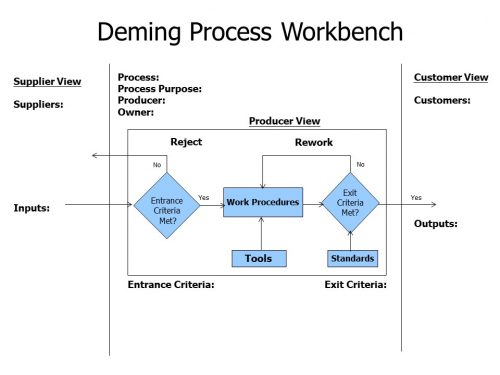The Biden administration wants to find and solve the ‘root causes’ driving the flood of refugees to the US from the south, and has assigned that task to VP Kamela Harris More generally, liberals and ‘progressives’ like to talk about ‘root causes’ for all kinds of things: crime, for example: instead of arresting criminals, just solve the Root Causes of crime!
Someone needs to explain to these people the concept of ask why five times, and how that concept is properly implemented. Example:
PROBLEM: There is oil on factory floor. Why?
Looks like it’s coming from that machine over there.
ACTION: Clean up the oil. But then ask…
WHY is there oil leaking from that machine.
The machine has a bad gasket.
ACTION: Replace the gasket. But then ask..
WHY was the gasket bad?
Check out the condition of the gaskets on some other machines.
Looks like we’ve been buying inferior gaskets.
ACTION: Change the specifications so we don’t get any more of these. But also ask..
WHY did we decide to buy the gaskets that we did?
Uhh…they were cheap? Turns out the purchasing policy for supplies like this says “always buy the low bid.”
ACTION: Change the policy to give more weight to quality as well as price. But also ask…
WHY did the head of Purchasing ever approve a policy like this in the first place?
Maybe because his *incentive program* includes a big component for year-over-year reductions in supplies cost, with no measurement for downtime impact of bad items?
ACTION: Change the incentive program.
WHY did a one-sided incentive program like this get created and approved?
And so on. (There is nothing magic about the number Five)
But importantly, you don’t wait until you run all the way up and down the chain of causation before you clean up the oil on the floor before someone slips on it and hurts himself. You don’t go through analysis of why inferior gaskets are being purchased before replacing the gaskets before the machine loses oil again and shuts down or destroys itself.
Democrat politicians often act like they don’t understand these points, even informally and intuitively. Many of them really don’t, I think…but also, many of them just don’t care; accumulation of political power for themselves and their faction is all that matters. Among their voters/supporters, though, there may be some who can be brought to understand the fallacies of root-causes-only thinking.
And, very importantly, if you pursue the chain of causation upward to enough levels, you are likely to find causes which are either beyond your ability to influence, or for which such influence has a very long time constant. In the manufacturing example, for instance, you may be a factory manager in a large company with very little influence on the incentive policies that drive Purchasing to acquire inferior gaskets. That still doesn’t mean you don’t need to clean up the oil and replace the failed gaskets, anyway. In the Biden/Harris policy case, serious thought would show that the ability of American leaders to influence the policies, economic systems, and cultures of our southern neighbors is strictly limited, and what influence we can exert is likely to have a very long time constant. That doesn’t mean we don’t need to do anything about the border crisis.

